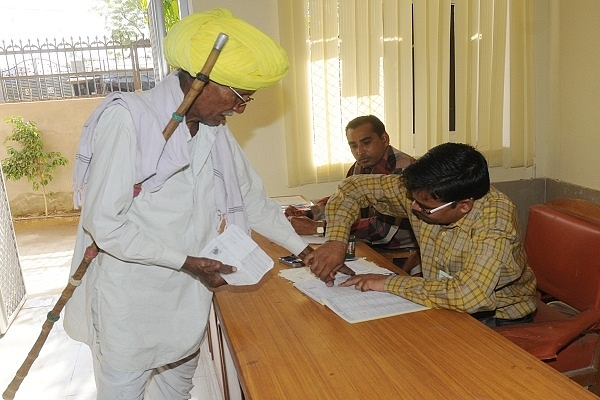
Here’s How Results Finally Unfolded In 2018 Assembly Elections in MP, Chhattisgarh, Telangana and Mizoram
As the dust has finally settled after the acute suspense of yesterday’s (Tuesday, 11 December) election results in Rajasthan, Madhya Pradesh, Telangana, Chhattisgarh and Mizoram, an objective assessment of the likely government formation in each state can now be made.
Results indicate anti-incumbency being most notable against the Raman Singh govenment in Chhattisgarh, from whom Congress wrested the state with an unexpectedly heavy majority, winning 68 of the 90 assembly seats and BJP being reduced to a meagre 15 seats. The Janta Congress Chhattisgarh (J) led by former chief minister Ajit Jogi emerged as the third largest party with five seats. The BSP also managed to make its presence felt, securing two seats.
Discontent that could be sensed even before elections against Vasundhara Raje government in Rajasthan led to a comfortable majority to the Congress, which in the final tally gained 99 of the total 199 seats up for grabs. In the swing state, BJP managed to win 73 seats, ensuring at least its role as a strong opposition. The Bahujan Samaj Party (BSP) emerged as the third largest political group, bagging six seats. The rest of the 21 seats went to an assortment of independents and smaller political parties.
Madhya Pradesh too seems to have fallen into the Congress kitty, with the party emerging as the single largest group with 114 seats, just one seat short of the half-way mark. The BJP still managed to limit its losses in the face of heavy anti-incumbency, finishing just behind the Congress with 109 seats. The BSP managed to gain some ground here as well, winning two seats, while its old nemesis Samjwadi Party (SP) also secured one seat in the state assembly. Independent candidates won in four constituencies.
Telangana was an overwhelmingly one-sided contest, with the Telangana Rashtra Samithi clinching 88 out of 119 seats, Congress emerging a distant second, winning just 19 seats. The All India Majlis-E-Ittehadul Muslimeen, came third with seven MLAs. Raja Singh Lodh is the only BJP candidate who managed to win a seat, even though the party gained a seven per cent vote share. Telugu Desam Party won two seats, and another two seats went to other candidates.
Mizoram similarly was a one-sided contest, with the Mizo National Front sweeping 26 of the state’s 40 seats and the Congress managing to win only five seats and the BJP barely registering a presence with only one seat. Independents won the other eight seats in the north-eastern state.